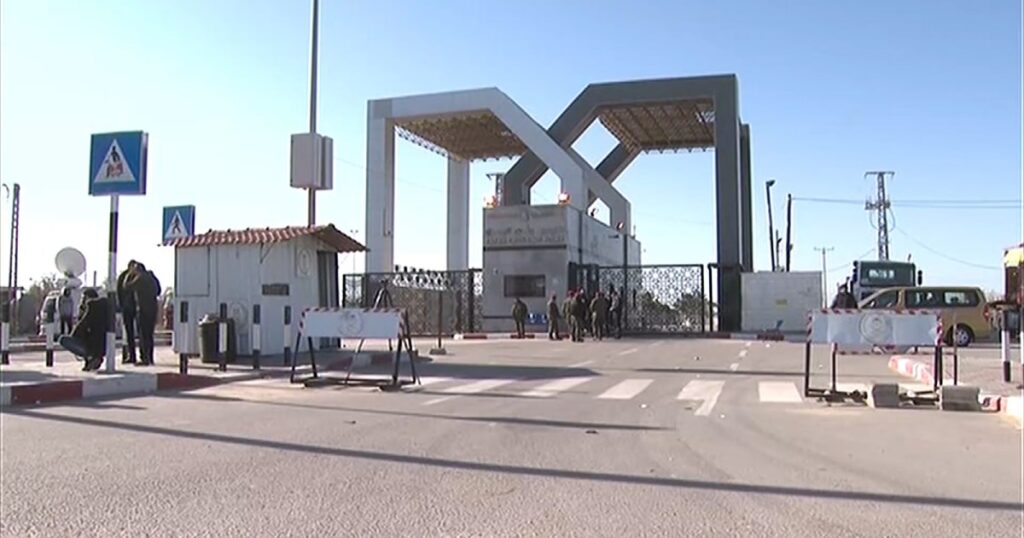The Washington Post said that the Israeli attack on the Rafah area in the southern Gaza Strip, with the aim of eliminating the last brigades of the Islamic Resistance Movement (Hamas), dashed any hope that sick and wounded Palestinian civilians had of escaping the furnace of the war raging there.
She added in a report that the Palestinians in Gaza did not really have any chance to survive the war, and then came Israel’s seizure of the Rafah border crossing with Egypt last month, closing their last remaining outlet to exit the besieged Strip.
It reported that Israel had allowed tens of thousands of Gazans to leave through Rafah over the past eight months. Some of them were critically ill or injured, while others left after paying huge sums of money to an Egyptian company that facilitated their departure. For their part, foreign countries worked to evacuate dual nationals and their relatives.
Talks to no avail
The American newspaper indicated that the United States, Egypt and Israel are engaged in talks to reopen the crossing, which it described as vital in order to deliver aid to the Gaza Strip, although they have not achieved any significant progress.
The Israeli human rights organization “Gisha” revealed that it succeeded in pressing for the departure of 18 Palestinian citizens of Israel and residents of Jerusalem from Gaza in late May through the Kerem Shalom crossing in the southern Gaza Strip.
Although the Israeli aggression on Rafah dashed any hope for the exit of sick and wounded civilians, the collapse of the health sector prompted the United Nations to warn that more than a million people may face famine by mid-July. For some, closing the border was a death sentence.
One of the tragedies
Among the pictures of tragedies suffered by the residents of the Gaza Strip, and reported by the newspaper, is the story of a Palestinian woman named Fidaa Ghanem (44 years old) who was diagnosed with lymphoma in late February. She and her husband Maher (46 years old) initially attributed her weight loss to the pressures of war and lack of weight. Food.
The Washington Post quoted Maher as saying that the radiotherapy and chemotherapy that Fidaa needed were not available in Gaza, so doctors referred her for treatment abroad. By mid-March, Fidaa received financial support from the Palestinian Ministry of Health for treatment in Egypt, according to a document in her family that the American newspaper reviewed.
Fidaa’s name was on the list of departures approved for travel on May 7, the day after Israeli tanks entered Rafah and took over the crossing.
Maher said: “My wife was prevented from traveling to receive treatment in Egypt.”
According to the press report, Fidaa spent her last weeks in Al-Aqsa Hospital in the city of Deir Al-Balah in the middle of the Strip, which is now the largest operating hospital in Gaza, although there was not much they could do, according to her husband.
“Her health condition is deteriorating and the tumor is spreading,” he told the newspaper on May 31. There is no medical care, and even the painkillers given are weak and insufficient for a cancer patient.”
But Fidaa – a mother of 5 children – surrendered her soul to her innocent on June 4.
Thousands need treatment
Among those prevented from leaving is a Palestinian named Abdullah Abu Sobeih (40 years old), who was paralyzed in March, as a result of a sniper bullet that penetrated his spinal cord while he was pulling the bodies of his dead relatives from under the rubble of their house in southern Gaza, which collapsed as a result of an Israeli raid.
Abu Sobeih told the Washington Post that the International Medical Corps Hospital in Khan Yunis recommended he be treated abroad, and he hoped to travel in mid-April, but his name never appeared on the list of people approved for departure via Rafah.
Since then, Abu Subeih, a father of three children, has remained in difficult conditions in a field hospital in the southern Gaza Strip.
The World Health Organization estimated on June 7 that 14,000 people in Gaza needed to be evacuated for medical treatment. The Coordinator of Israeli Government Activities in the Occupied Territories – the Israeli agency that controls movement into and out of the Gaza Strip – did not immediately respond to the newspaper’s request for comment on Fida’s case or whether she plans to provide an alternative exit for other sick and wounded Palestinians.

